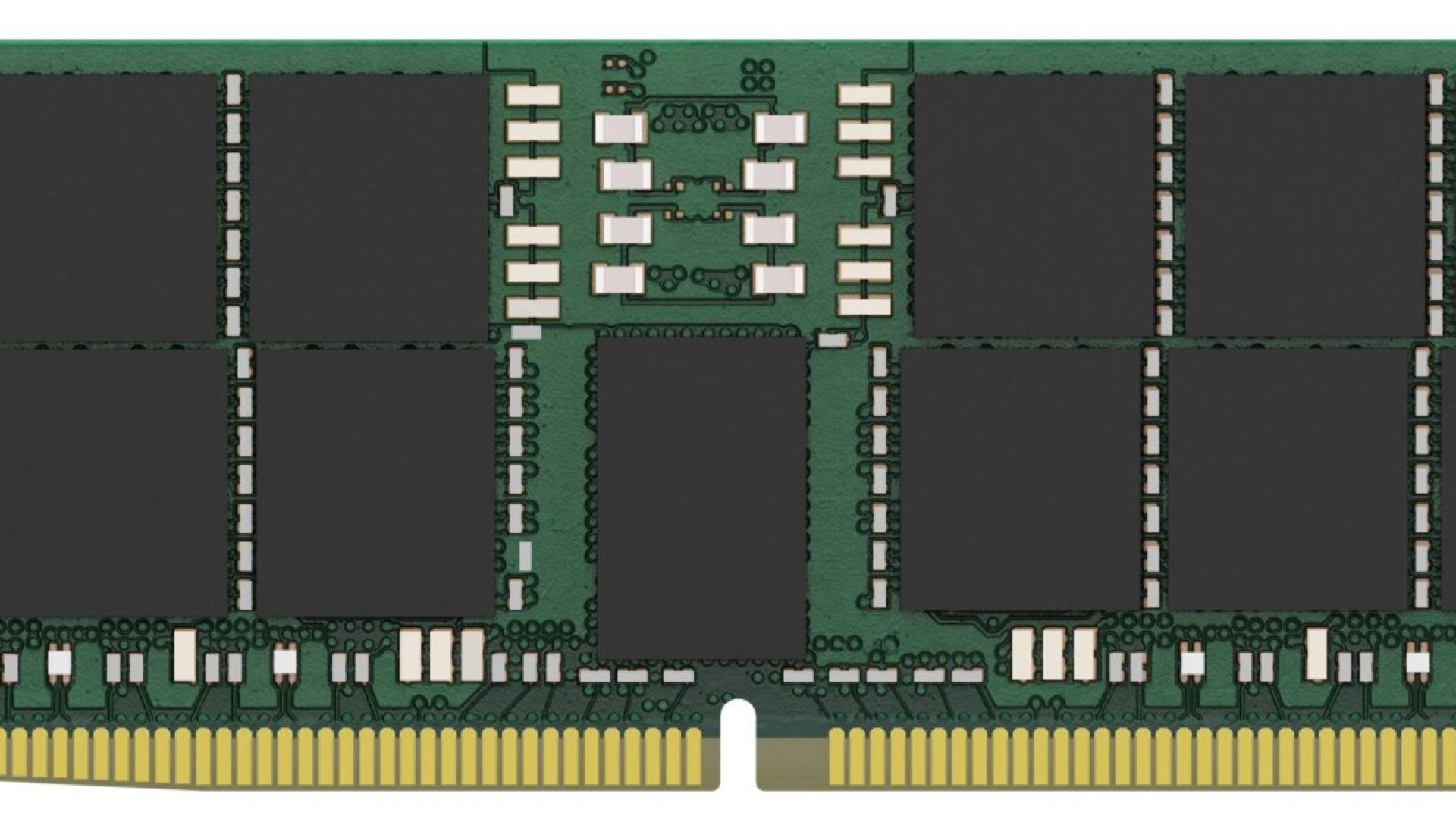Kingston Technology, a world leader in memory products and technology solutions, today announced its 64GB, 32GB, and 16GB Server Premier DDR5 4800MT/s Registered DIMMs have been validated on the 4th Gen Intel® Xeon® Scalable Processor (formerly codenamed Sapphire Rapids). Kingston offers server memory and Data Center (DC) SSDs for the most demanding workloads, and supports the global needs to store, manage and instantly access large volumes of data in both traditional databases and Big Data infrastructures.
For over 35 years Kingston has been the memory brand trusted by leading server manufacturers and the world’s largest data centers. Server Premier is Kingston’s industry standard memory solution sold by specification for use in white-box servers, and is platform validated and qualified by leading motherboard/system manufacturers. Featuring a locked BOM (Bill of Materials) to provide a consistent brand and revision of primary components (including DRAM, register, PMIC, SPD hub, thermal sensors, and PCB), all Kingston server memory solutions are 100% tested and undergo a rigorous dynamic burn-in process designed to catch early-life failures at the factory.
Server Premier Features include:
- Locked Bill of Materials (BOM)
- Part Change Notifications (PCN) – 90 days
- 8Q roadmap visibility
- Server platform validation
- Leading server motherboard manufacturer qualification
- Limited Lifetime warranty
- Industry-leading service and support
Intel’s 4th Gen Xeon Scalable Processor is their first to support next-generation DDR5 server-class memory and features eight memory channels, arranged in up to two DIMMs per channel, or 16 DIMMs per CPU socket. At 4800MT/s, each DDR5 Registered DIMM provides a peak bandwidth of 38.4GB/s, which when grouped in multi-channel configurations provides a marked increase in performance over DDR4-based servers. DDR5 introduces advanced features for a more reliable and more efficient memory subsystem, including on-die ECC (ODECC), double the number of banks and double the burst length, improved refreshes, inclusion of a power management circuit (PMIC), additional temperature sensors, decision feedback equalization (DFE), and dual independent 32-bit subchannels (40-bit for ECC).
The following modules are available now:
| KSM48R40BD4TMM-64HMR | 64GB DDR5-4800 ECC Registered DIMM x80 CL40 2Rx4 1.1V |
| KSM48R40BS4TMM-32HMR | 32GB DDR5-4800 ECC Registered DIMM x80 CL40 1Rx4 1.1V |
| KSM48R40BD8KMM-32HMR | 32GB DDR5-4800 ECC Registered DIMM x80 CL40 2Rx8 1.1V |
| KSM48R40BS8KMM-16HMR | 16GB DDR5-4800 ECC Registered DIMM x80 CL40 1Rx8 1.1V |
“We’re excited to announce the validation of our next-generation server memory parts on Intel’s 4th Gen Xeon Scalable processor,” said Kingston. “Validation is always the first step for memory manufacturers to demonstrate the quality and compatibility of their memory solutions. DDR5 delivers the technology to scale in bandwidth and capacity to meet the performance requirements of tomorrow’s data centers.”
In addition to server memory, Kingston’s Enterprise SATA 3.0 and NVMe Data Center (DC) SSDs are storage solutions designed with a stringent set of development requirements and a thorough testing process. The Kingston’s SATA Data Center SSDs are reliable high-performance, low-latency drives built for data centers and efficient client systems. Kingston’s NVMe Data Center SSDs provide extreme speeds for exceptional Quality of Service (QoS) demands for extensive daily tasks to mission critical information. Offering enterprises a wide variety of products to choose from.
For more information visit kingston.com.
Kingston can be found on:
Facebook: https://www.facebook.com/KingstonAPAC




